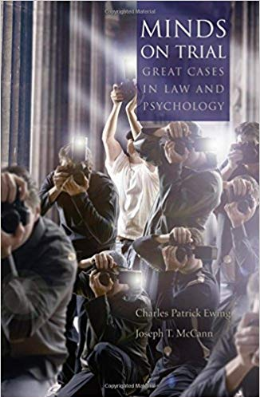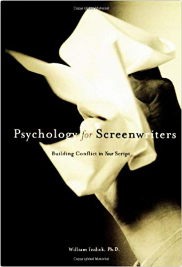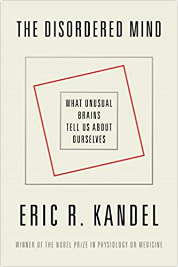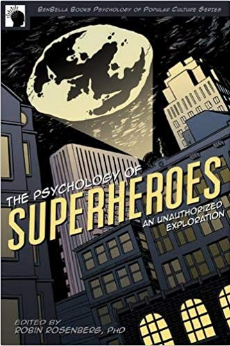Psychology is a complex subject involving a wide variety of different areas, and there are great books out there for learning all of these areas. However, some of them can be dry for certain readers because of their educational focus, while others can be inaccessible due to their academic grounding. Luckily, there are a lot of great and accessible psychology books out there for people who are not necessarily students to read for fun (and maybe learn a bit about psychology along the way).
Note: Most of the links below are affiliate links. You can read our about page to learn more about these links. At the end of the day, they’re pretty much the same as any other links to Amazon.
10 entertaining books about psychology
Butler-Bowdon, T. (2017). 50 Psychology Classics, Second Edition: Your shortcut to the most important ideas on the mind, personality, and human nature (50 Classics). London: Nicholas Brealey.
This first book is a part of the “50 Classics” series that aims to summarize 50 classic works in various fields, with this book of course focusing on psychology. This book discusses classic works by Adler, Erikson, and Briggs Meyers along with more recent works by Csikszentmihalyi, Ramachandran, and Seligman. If you want to read through a brief history of important works in psychology, this book is likely the easiest way to do it without getting bogged down by filler (though you can of course dive deeper into any of the works presented if you so choose).
Ewing, C.P., McCann, J.T. (2006). Minds on Trial: Great Cases in Law and Psychology, First Edition. Oxford: Oxford University Press.
This is a textbook, so you might be wondering how it can possibly be fun, but just bear with me. Written by two psychologists with experience in forensic psychology, it is an account of high profile legal cases that have involved expert testimony from psychologists, ranging from the Woody Allen case to the Jeffrey Dahmer case. If this sounds boring to you, go ahead and skip to the next suggestion, but if you like true crime shows or podcasts, you will probably enjoy this book’s dive into the psychological aspects of such cases. Most importantly, you can trust that the authors are approaching the subject from a psychological point of view, not a sensational point of view.
Indick, W. (2004). Psychology for Screenwriters. Michael Wiese Productions.
For any writer who is trying to learn a little bit more about psychology so that they can make their characters feel more real, this book written by an associate professor of psychology who is now at William Paterson University is a great choice. While it is specifically aimed at screenwriters, novel writers can just ignore the visual tips and hone in on the general psychological concepts described. Many books on psychology are aimed at people who are already knowledgeable in psychology, so this is a good opportunity for other people to learn more about the subject.
Kandel, E.R. (2019). The Disordered Mind: What Unusual Brains Tell Us About Ourselves, Reprint Edition. New York: Farrar, Straus and Giroux.
Eric R. Kandel is one of the more well known psychologists of the 20th century, and he was rewarded for all his work with the Nobel Prize in Physiology or Medicine in 2000. This book is his attempt to present the most up-to-date research on the brain to a general audience in an accessible manner. If you want to get yourself up to speed on the most recent research into the brain but don’t want to pore through academic texts, this book is your best bet.
Madigan, J. (2019). Getting Gamers: The Psychology of Video Games and Their Impact on the People who Play Them, Reprint Edition. Lanham: Rowman & Littlefield Publishers.
Video games are near and dear to my heart (as anyone who reads my video game site, My Dpad, will know). Many psychological analyses of video games focus solely on their addictive potential, while this book instead takes a holistic view of how psychological concepts affect how games are designed, played, and enjoyed. This book also has more of a focus on gaming as a social, community activity than you might expect. This is a must-read for any gamer who wants to learn more about how psychology is involved in their favorite hobby and the industry surrounding it.
Mair, C. (2018). The Psychology of Fashion (The Psychology of Everything), First Edition. Abingdon-on-Thames: Routledge.
This book, part of the “The Psychology of Everything” series of books, is a deep dive into the various psychological processes involved in the fashion industry. Written by a fashion expert with a PhD in cognitive neuroscience, this book explores topics ranging from how fashion affects the body image of consumers, to how psychological concepts are exploited by fashion retailers. For people who are particularly interested in applications of psychology (in other words, for readers of this site), this is a good way to learn about psychology in practical settings.
Markman, A., Duke, B. (2016). Brain Briefs: Answer to the Most (and Least) Pressing Questions about Your Mind. New York: Sterling.
If you have a lot of questions of psychology and want them answered in an entertaining way, there’s no better option than this book from two psychology professors. They also host a podcast, the Two Guys on Your Head podcast, where they discuss psychology for a general audience. This is a great book for anyone who has an interest in psychology but wants to get some answers in a way that is more fun than reading academic papers or textbooks.
Oppenheimer, D., Klein, G. (2017). Psychology: The Comic Book Introduction. New York: W. W. Norton & Company.
As is clear from the title, this is an introduction to psychology in the form of a comic book. It is written by a psychologist at Carnegie Mellon University and illustrated by a cartoonist, so you can trust that it will be both educational and entertaining. While this comic book is a great introduction to psychology for students or younger readers, it is also good for people of all ages who want to learn about psychology through an entertaining medium.
Paterson, R.J. (2016). How to Be Miserable: 40 Strategies You Already Use. Oakland: New Harbinger Publications.
This book was written by a psychologist as a somewhat sarcastic answer to the piles of self-help books out there. Rather than telling you how to better your life, the author describes 40 ways that you might be making your own life worse, in an attempt to help you identify those behaviors and thoughts so that you can stop doing/thinking them. If you want a self-help book with a funny tone instead of an overly inspirational tone, this is the book for you.
Rosenberg, R.S., Canzoneri, J. (Eds.). (2008). The Psychology of Superheroes: An Unauthorized Exploration (Psychology of Popular Culture). Dallas: Smart Pop.
This book, part of the Psychology of Popular Culture series, is a collection of essays about the psychological concepts behind various superhero stories. One of the editors has a PhD in clinical psychology and has written a number of books herself, so you can trust that these essays have valuable psychological insights presented in a fun way. This is a great way for anyone who loves superheroes to read up on psychology, though it was unfortunately published just prior to the latest boom in superhero movies.
Wrapping up
If you want to read psychology books that are not written in the style of textbooks, any of the 10 listed above is an excellent choice. You can also use these books as a starting point to start seeing other recommended psychology books that people like you are reading. No matter which one you start with, I hope you enjoy.









